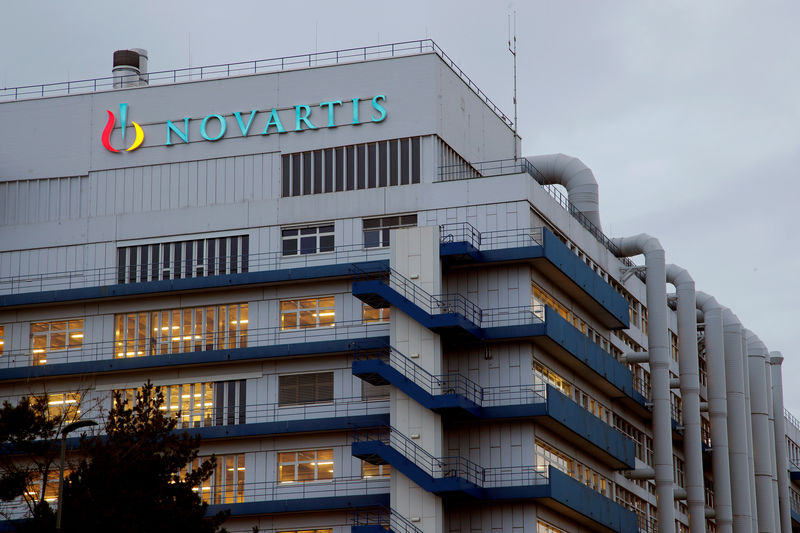By John Miller
ZURICH (Reuters) - Swiss drugmaker Novartis' (S:NOVN) first quarterly results under new CEO Vas Narasimhan have been marred by a prized psoriasis treatment that disappointed and a sharp slump in sales by its U.S. generics unit.
The stock declined 1.9 percent at 0910 GMT, more than double the fall of the broader European Healthcare index (SXDP) after the company released first-quarter earnings.
While Narasimhan confirmed 2018 growth targets, his Cosentyx drug for psoriasis and arthritis missed analyst expectations by more than $50 million.
And though price pressure on Novartis's Sandoz U.S. generics business is no secret, the 18 percent sales decline in the world's biggest market underscores the company's uphill struggle in the U.S. to market cheap, copycat pills amid intense competition and buyers seeking to cut costs.
Sandoz's U.S. business is under review for a possible disposal, but the relentless price battle could make finding a buyer more difficult, especially one willing to pay a reasonable price.
"At Sandoz, times are tough," said Berenberg analyst Laura Sutcliffe, who has a "hold" rating on the shares. "The biggest surprise is that psoriasis drug Cosentyx delivered sales that are a 9 percent miss versus consensus."
"It is possible we are starting to see the effects of a more-competitive landscape in psoriasis."
Cosentyx, a pillar for replacing plunging revenue from Novartis's patent-expired Gleevec blood cancer drug, boosted revenue by 35 percent to $580 million. Still, that trailed the average analyst forecast of $636 million.
Novartis blamed the impacts on Cosentyx sales on destocking at the specialty pharmacy level, and price concessions it made to help the drug win business in earlier treatment.
MIXED BAG
Overall, core net income rose 4 percent to $2.98 billion, the Basel-based company said, equaling analyst forecasts in a Reuters poll. Sales rose 4 percent in constant currencies to $12.7 billion, beating forecasts for $12.3 billion.
Narasimhan, who took over Feb. 1, has other reasons for encouragement. His cancer drugs portfolio enjoyed 6 percent growth in the first three months of 2018, while a resurgent Alcon eye care unit profited from demand for products like implantable lenses.
Alcon's $1.8 billion sales, up 7 percent, beat analysts' $1.6 billion forecast and could increase Novartis's options as it considers spinning off the unit to shareholders to focus on prescription drugs.
A spin-off could come as early as first-half 2019, Novartis said.
"Operationally, we drove solid growth across all financial metrics, strong performance across our key growth brands, and continued Alcon’s strong recovery,” Narasimhan said in a statement.
He also announced that he had poached Amgen's (O:AMGN) John Tsai as his new chief drug developer.
Novartis is on track for 2018 core operating profit to rise by a mid-to-high single-digit percentage, it said.
Even so, Narasimhan, a U.S. citizen and Harvard-trained doctor, is not there yet: First-quarter core operating profit rose only 4 percent to $3.34 billion, so improvements are needed by year's end.
To start 2018, Narasimhan has been aggressively managing his portfolio, unloading a consumer health venture to GlaxoSmithKline (L:GSK) and adding gene therapy hopeful AveXis (O:AVXS) for $8.7 billion.

The deal for AveXis, whose top spinal muscular atrophy prospect is expected to have multiple-billion-dollar annual sales potential, shows Narasimhan is hunting for targets that could run to $10 billion.